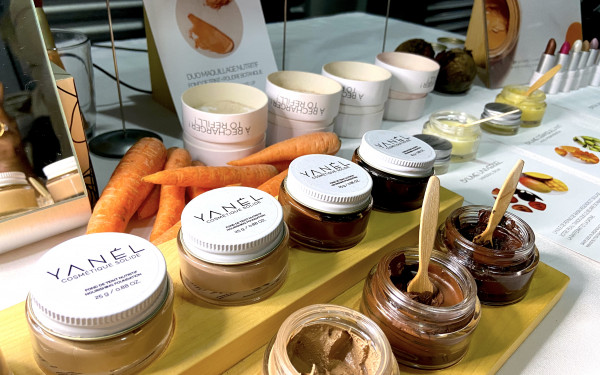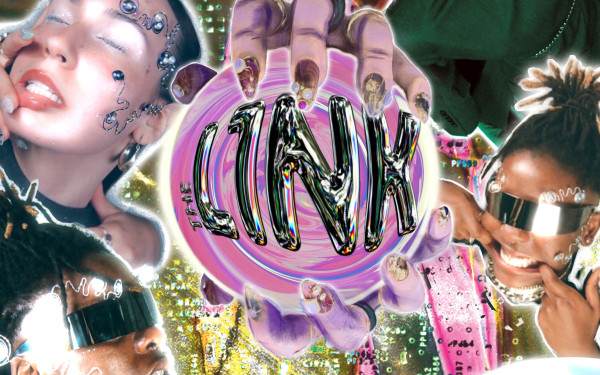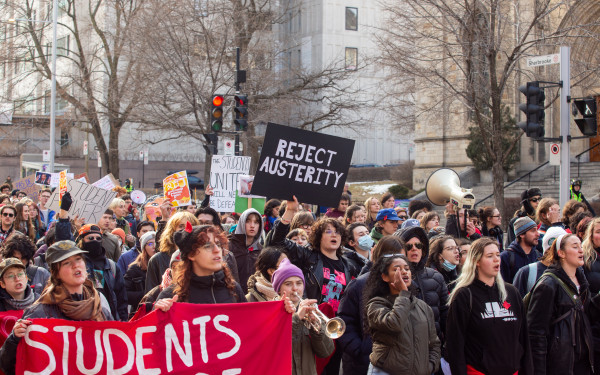The Indie Biz
Indie Montreal Is Helping Little Bands Make the Big-Time
When you’re a musician focusing on your craft, it’s sometimes hard to handle the business side of things.
The Arcade Fires and the Patrick Watsons of the industry notwithstanding, many artists will struggle to build their reputation and seize opportunities—or some might just not know how.
Although picking up a guitar may come naturally, things like how to get booked to how to market a record don’t necessarily follow the same trajectory.
But while the industry aspect of music is daunting for some artists, it’s the perfect milieu for a young entrepreneur.
For promotion company Indie Montreal, bridging that gap has been their business for nearly five years.
When asked about the promotion company’s beginnings, founder and director Jon Weisz was frank.
“Part of it, I guess, started with me throwing a number of parties in college and attending a lot of concerts. Eventually, I got sick of the parties but I realized that I’d gained this particular knowledge on the
different venues available and the promoting business,” said Weisz.
He’s a McGill alumnus with bachelor’s degree in commerce, and started the company at age 20 while studying entrepreneurship and marketing.
From its debut showcasing local bands, Indie Montreal has quickly moved to bigger venues and major collaborations with almost a dozen different festivals, such as their showcase at POP Montreal this year.
The company is now responsible for booking anywhere from 100 to 150 shows annually, taking charge of every detail, from A to Z.
“I was the only employee when I founded Indie Montreal, so understand that, to me, that kind of growth is still a shock,” Weisz said of whenever anyone recognizes him or his company.
Their client base is diversified, to say the least. They promote artists who haven’t yet broken out onto the music scene the same way they’ll showcase bands with “larger than life” reputations, like Metric, who they have scheduled to hit the Bell Centre later in November, in collaboration with Evenko.
Needless to say, for smaller, more independent bands or artists, a promotion company like Indie Montreal can be a make-or-break element on the path to success.
“We think it’s important to have promoters like IM in the industry, so smaller bands get the opportunity to play on a stage with more well known artists,” said Maya Malkin of Motel Raphaël, a Montreal folk band that has worked with the company various times.
“They organize everything, so all we have to worry about is getting to the venue and playing. It takes off a lot of stress,” said Malkin. “We remember when we did all our own booking and it was a hassle.”
Weisz is the first to admit that, despite the fact that Montreal is overflowing with creativity in the industry, it’s a tough city to perform in.
“Bands that elsewhere across Canada can fill entire theatres will come to Montreal and barely be able to sell 200 tickets for a show,” he said. “There are so many bands that it makes it difficult to break through. From a business perspective, it can make our jobs difficult.”
Weisz isn’t the only one to think that the Montreal music scene is fairly packed. But for the members of Motel Raphaël, that’s part of what makes companies like this one so important.
“It’s nice to have someone else decide, ‘This band should play with these guys, that would make a nice mix,’” said Malkin. “We’ve met and played with so many bands we had never heard of before and that we now have contact with for potential future shows in all different parts of Canada.”
Although Indie Montreal is currently branching out towards other areas of Quebec, Weisz doesn’t want to get specific when it comes to his personal sights for the company’s future.
“I try not to think that far ahead, mainly because the music industry, be it here or anywhere else, can often undergo major transformations that can completely change the way we do business in it,” he said.
“I’ve been reading a lot about the history of the music business recently and I notice it more and more: nothing’s the same, the game’s constantly changing.”
If I absolutely had to pick where Indie Montreal would be in 10 years from now, I would say that I hope we’ll have branched out regionally. I’d really like us to be able to build bands from the very beginning and play on venues outside of Montreal.”
When asked to consider what he hopes the impact of Indie Montreal is, Weisz remains thoroughly down-to-earth.
His goals are clear and achievable: “Montreal has such a dense music scene that it’s hard to make a noticeable difference. […]
That’s why I think it’s interesting that we branch out towards places like Sherbrooke, where the student population offers great opportunities for enlarging our audiences and getting more exposure,” he said.
“In fact, sometimes seeing the potential there makes me wonder whether Montreal isn’t so developed that it’s too much for us to handle.”

_900_599_90.jpg)



_(1)_600_375_s_c1.png)

